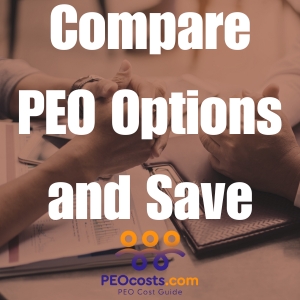
Does PEO Replace Your Company’s HR Department?
As the owner of a successful company in Massachusetts for the past eight years, I’ve worked with businesses of all sizes navigating the complexities of human resources management. With a bachelor’s degree in Psychology and Human Resources from Harvard, I’ve seen firsthand how Professional Employer Organizations, or PEOs, are transforming the way businesses handle HR.
One of the biggest questions business owners ask when considering a PEO is whether it replaces their in-house HR department. The answer isn’t a simple yes or no—it depends on the needs of the company, the capabilities of the PEO, and how the two can work together.
In this article, I’ll break down how a PEO can replace HR departments, the benefits of outsourcing HR functions, what PEO services may lack, and how to effectively integrate the two for a streamlined, high-performing business operation.
What is a PEO and How Does it Work?
A Professional Employer Organization is a company that partners with businesses to manage HR responsibilities. Through a co-employment model, a PEO takes over certain HR functions, including payroll, benefits administration, compliance, and risk management, while the business maintains control over operations and employee management.
PEOs legally become the employer of record for tax and compliance purposes, but business owners retain authority over hiring, firing, company culture, and strategic HR decisions.

Ways a PEO Can Replace Your HR Department
A PEO can fully replace an internal HR department for small and mid-sized businesses that don’t have the resources for a dedicated HR team. PEOs handle essential HR functions efficiently, providing expertise and compliance oversight while saving businesses time and money.
Payroll Processing and Tax Compliance
PEOs take full responsibility for processing payroll, handling deductions, tax filings, and ensuring compliance with state and federal tax laws. By outsourcing payroll, businesses eliminate the risk of costly errors, late tax payments, or compliance violations.
Employee Benefits Administration
Managing health insurance, retirement plans, and other employee benefits can be a challenge for in-house HR teams, especially for small businesses. PEOs negotiate better rates for benefits by pooling employees from multiple businesses, providing affordable healthcare and retirement options that might otherwise be out of reach.
HR Compliance and Risk Management
Employment laws are constantly evolving, making compliance a major challenge for HR teams. A PEO stays up to date with regulations at the federal, state, and local levels, ensuring businesses remain compliant with wage laws, workplace safety requirements, and anti-discrimination policies.
Workers’ Compensation and Unemployment Insurance
A PEO handles workers’ compensation claims and unemployment insurance, often securing better rates than a company would on its own. By managing risk and ensuring claims are handled properly, a PEO helps businesses reduce liability and avoid legal disputes.
Recruitment, Onboarding, and Employee Relations
Many PEOs offer recruitment assistance, onboarding programs, and employee training, streamlining the hiring process and ensuring new hires are set up for success. They also provide HR guidance for employee relations issues, such as conflict resolution, performance management, and terminations.

Why Replacing HR with a PEO is a Good Thing
Outsourcing HR functions to a PEO can significantly benefit businesses, especially small and mid-sized companies that lack the resources for a full HR department.
Cost Savings
Maintaining an in-house HR team is expensive. Salaries, benefits, training, and HR software can add up quickly. A PEO provides HR services at a lower cost, allowing businesses to allocate resources more effectively.
Reduced Compliance Risks
Employment laws and tax regulations are complicated and ever-changing. A PEO ensures businesses stay compliant, reducing the risk of legal trouble and costly fines.
Access to Better Employee Benefits
A small business may struggle to offer competitive benefits, making it harder to attract and retain top talent. A PEO gives employees access to high-quality health insurance, retirement plans, and other perks at lower costs.
Improved Efficiency
HR responsibilities can be time-consuming and distract from business growth. A PEO takes over administrative tasks, allowing business owners and managers to focus on strategy, operations, and revenue growth.
What a PEO May Lack Compared to an In-House HR Department
While a PEO provides comprehensive HR services, there are areas where an internal HR department may still be necessary. Understanding these limitations helps businesses make an informed decision on whether to fully replace HR or integrate the two.
Lack of Direct Company Culture Involvement
PEOs handle compliance and administration, but they don’t shape company culture. An in-house HR department can actively engage with employees, organize team-building activities, and align HR strategies with business goals.
Limited Hands-On Support for Employee Relations
PEOs provide guidance on employee relations, but they are not physically present in the workplace. Companies dealing with day-to-day employee management, disciplinary actions, or internal disputes may still need an HR professional on-site.
Less Flexibility for Unique HR Needs
Some businesses have industry-specific HR requirements that a general PEO may not fully address. In-house HR teams can tailor policies, procedures, and training programs to fit unique business needs.

How to Integrate a PEO with Your HR Department
For many businesses, the best solution is a hybrid approach—integrating a PEO with an internal HR team to create a highly efficient and cost-effective HR structure.
Assign Strategic HR to In-House Staff
Instead of eliminating HR altogether, businesses can retain an internal HR professional to handle:
- Employee engagement and culture-building
- Performance management and career development
- Leadership training and workplace policies
Let the PEO Handle Administrative HR Tasks
The PEO should take on payroll, benefits, compliance, and risk management, freeing up in-house HR staff to focus on employee relations and company culture.
Establish Clear Roles and Responsibilities
To avoid confusion, clearly define what the PEO will handle and what in-house HR will oversee. A well-structured collaboration between the two ensures smooth operations.

Should Your Business Replace HR with a PEO?
Deciding whether to replace HR with a PEO depends on the size, needs, and resources of your business.
A small or mid-sized business may find that a PEO can fully replace HR, handling all aspects of human resources more efficiently and at a lower cost.
Larger businesses or companies with unique HR needs may benefit from a hybrid model, keeping a small in-house HR team while leveraging a PEO for compliance, payroll, and benefits administration.
Final Thoughts
A PEO can replace a company’s HR department, but whether it should depends on business size, internal needs, and the role HR plays in company culture. Many businesses find that integrating a PEO with a small in-house HR team is the best solution, balancing efficiency with hands-on employee engagement.
For companies looking to streamline HR, reduce costs, and stay compliant, a PEO is a powerful tool that enhances HR operations and allows businesses to focus on growth.
About the Author
Carol Sanders is a business owner in Massachusetts with over eight years of experience in human resources and business management. She holds a bachelor’s degree in Psychology and Human Resources from Harvard University and is a writer and editor for PEO Costs, where she helps businesses navigate HR outsourcing and PEO partnerships.

